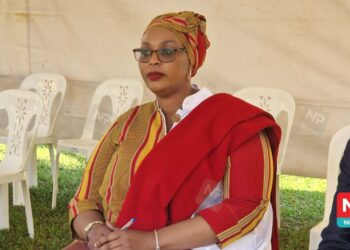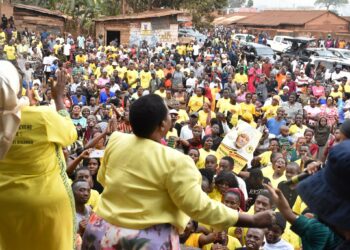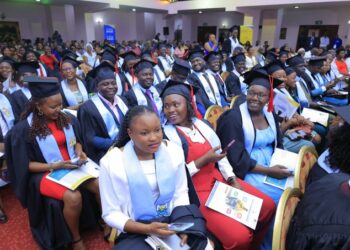Across the country, lawmakers, religious leaders and the majority of the public are pushing policies that prohibit transgender people, who identify with a gender different than the one assigned to them at birth.
The common analogy in space is that the trans-genders will contaminate the young society by converting them to their beliefs and likes, thus leaving their normal and naturally known behavior of man.
Religious leaders, political leaders and some Ugandans always argue that letting trans-people freely interact with the general community, and enjoy their full rights like other people, will corrupt the entire society despite the lack of threads of evidence to sustain such arguments.
According to Mubiru Arthur, the Executive Director of Initiative for Transformation Empowerment, an organization that fights for and protects the rights of trans-genders, some people don’t identify their gender as the sex they were assigned at birth.
Some people, for example, may have been born with a male organ, and designated male at birth as a result, but later realize that they identify as women and typical social standards of masculinity or femininity don’t apply to them.
These people are adopting forms of gender identity and expression that aren’t related to their body parts or what sex a doctor decided they are at birth.
“We need our society because right from our childhood we are affected by the way we feel and
because no one is willing to listen to us or help us, we are instead discriminated against! This has
affected many of us mentally and at the end of the day, we cannot work because we are isolated
in the society.
Here in Uganda when you come out as a transgender person, they automatically will call you a homosexual, yet in actual sense transgender persons are not homosexual unless their sexual orientation is gay or lesbian.
We are just gender diverse persons whose human rights have been violated politically, socially, economically, and culturally.
There are very many people who have been expelled from school because of the way they look,” he said.
Mr. Mubiru added that because of what they are, their rights have been violated by both the local
community and the law enforcers denying them access to healthcare yet they are living entirely
on healthcare packages. “Our living depends on health therapies, hormone replacement therapy,
and mental therapy. We need a lot of health personnel to help us but here in Uganda it’s always
very hard. We are biased with depression and anxiety… how about if we are given ears and
listened to, we are not enemies! We were born like you – the society needs to understand us…
even doctors fear serving us because they will lose their license.”
“Our parents, religious leaders, and all leaders must know that we are not the same. Our genders
and sexualities are not the same. Tomorrow, it might be your son or daughter or any other
relative, therefore, it’s better to learn and unlearn from each other.
There is need to sensitize all these groups – we are not recruiting anybody but if we learn and live harmoniously, we may reduce stigma in us and even the way our relatives suffer.”
Jojo Desire, also a trans-woman, narrates how she has suffered discrimination right from her
village to the extent that she was once arrested for her character and because she was ‘spoiling’
the young children. “People of our kind (trans-people) have been around for a long time, only
that history has always left them behind and probably most people have not done enough
research about it, but because of the culture and social norms people of our kind have always
been seen as reproaches. Leaders in the community have not taken any steps to understand us.
They have just discriminated against us, subjecting us to beatings and unfair treatment at police
stations. Even church leaders have closed doors on us! We have been chased away from our
homes, and lost our jobs.”
She added that “Most people call us demons and treat our identity as an adaptation of western
culture, but this is not true. Societies in Africa still lack a proper understanding of what a
transgender person is. Even government must come up with a policy of inclusion for us. We are
not enemies. The society that discriminates against us is the same society of people who rape
young people, and we are not that type. Leaders at all levels need to accept us and listen to us.”
Many people, particularly those who have never met a transgender person, are naturally curious
about what it’s like to be trans-gender. There may be unfamiliar terms, conflicting information,
and uncertainty around what is and isn’t okay to ask. The vast majority of Ugandans are
cisgender, meaning that they identify with the sex they were assigned at birth. Perhaps because
people who are not cisgender have not been known, there’s an exposure gap for many Ugandans
and Africans at large. For such people, it can be difficult to understand how, for instance, a
person born with a vagina and raised as a woman might identify as a man.
However according to Mr. Mubiru, their advocacy is the society to give them a chance to explain
who they really are, and let them live in harmony with other people.
Do you have a story in your community or an opinion to share with us: Email us at editorial@watchdoguganda.com













